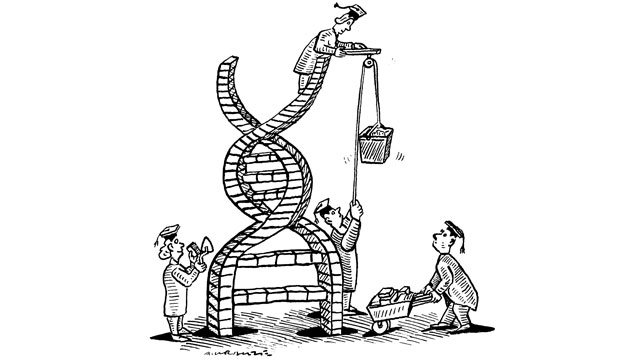Integrated Laboratory Medicine Directorate
Proposal to create a new NUTH ‘Integrated Laboratory Medicine’ Directorate (ILM)
Dr Paul Brennan and Dr Akhtar Husain

Background
- Executive colleagues have previously supposed the concept of a merger between the current Lab Medicine Directorate and the Genetics Directorate. The proposal is to modernise our approach to diagnostics with improvement in quality of diagnosis and management for our patients.
- The retirement of the Directorate manager for the Genetics Directorate gives us an opportunity to create a new Directorate Manager for a new merged Directorate. The post has been advertised and interview will be held in August. Once we have recruited, we will be able to set a date at which we can formally merge. This is our opportunity to realise an innovative vision.
Why do this and why now?
- We are proposing the development of an institute for modernising our approach to diagnostics, with particular reference to cancer diagnosis at present. This will include generating integrated reports following the histological and genetic analysis of each tumour.
- Genetics is no longer the buzz-word. Introduction of genomics is a major NHSE strategy. Our current working arrangement is not fit for purpose to deliver high-strategy genomic diagnostics into routine health care.
- Before the 100,000 Genome Project happened, it was already clear that cancer treatment was increasingly informed by genomic test date from individual tumours. This is now sky-rocketing. The 100,000 Genome Project is laying the foundations for this (the Chief Medical Officer has the term ‘generation genome’ to describe what she perceives to be a step-change in diagnostic technology) and NHSE is already moving beyond this Project by re-commissioning genomic testing services – including whole genome sequencing – beyond 2018.
- We need to radically gear-up for genomic cancer diagnostics – not just whole genomes but many other types of DNA and protein tests. It is no longer tenable for genetics labs and cellular pathology to remain in separate Directorates.
- The boundaries between NUTH’s molecular genetics lab, cytogenetic and NewGene are blurring. These labs will be working in ever increasing partnership with counterparts in Leeds and Sheffield. In all of these centres, ‘genomics’ and ‘pathology’ need to integrate.
Benefits to NUTH
- We don’t believe that all of the following can be achieved by retaining separate Directorates. Some of it can, but the benefits of integration allow true joined-up business planning around molecular diagnostics. At present this is almost entirely restricted to cancer diagnostics and therapeutics. On the horizon are pharmacogenomics and microbial genomics. We must be ready for this.
We feel the benefits include:
- First and foremost, improvements in patient care and pathways. We can shave significant time off the diagnostic process. We can improve diagnostic accuracy and therapeutic decision-making.
- NUTH must position itself as the regional provider of the bulk of molecular pathology testing.
- Resolution of management structures into a single framework.
- Understand similarities and differences in existing lab leadership, working towards standard framework.
- Attract and retain high-quality staff.
- Consolidate existing ‘personalised medicine tests’ under a single Directorate.
- Resolve existing multiple funding mechanisms, anticipating NHSE re-commissioning process.
- Development of a single sample reception portal for all biological specimens.
- Optimise use of scarce biological materials. Link closely to biobanking facilities.
- Maximise utilisation of existing and emerging technology and expertise.
- Integrated test development: the best current example is in response to a new NICE guideline for all colorectal cancer tumours.
- Migration to common lab IT platform.
- The development of integrated molecular pathology reporting (an RCPath must-do).
- Potential to exploit the clinical and commercial opportunities afforded by the development of new technology – this is NewGene’s potential role in an integrated Directorate.
- Capitalise and build upon the outputs of the 100,000 Genome Project.
- Support and strengthen NHS service delivery through research, linking more closely with the MRC Node.
- We propose that, in order for such a leading-edge venture to be effective, a single-site development will be required. This would be place NUTH in the first wave of NHS integrated molecular diagnostic providers.
Proposed way forward
- At the point of merging, Dr Akhtar Husain will be the Clinical Director of the new merged Directorate. Dr Paul Brennan will be the deputy Clinical Director with a remit around genomics until end of 2018.
- From August 16th, Miranda Splitt will formally assume the role of Clinical Lead within the Genetics Directorate.
- We have the opportunity to merge in a name with immediate effect; the finance and HR officers for the current Directorates are the same. It is clear that a merger is not an event but a process with many work streams that will take many months.
- The current DM (Genetics) post would continue until the appointment of DM (ILM).
- We wish to develop an open comms policy within our teams, ensuring that all parties receive the same information. Their views will be important in shaping the new Directorate; we wish to open a consultation process to collect those view.
- We expect the new DM(ILM) to lead a transformation process with senior HR input that nuclides a skill mix review across all labs within ILM. This would comprise the first major work-stream for ILM.
- The merged management structure should be in line with the current Laboratory Medicine Directorate structure with heads of departments and lab manager for each discipline.
- We would like to explore the possibility of establishing a single specimen reception area at RVI, with a view to (for example) moving some DNA extraction facilities to RVI
- Work on interim arrangement for integrated reporting is already underway.
Most importantly, talk to us if you have any comments, concerns or ideas.

For further information, please contact: Dr Paul Brennan, Consultant Clinical Geneticist,
Genetics (0191 241 8600), Dr Akhtar Husain, Laboratory Medicine Clinical Director (0191 282 9440)
